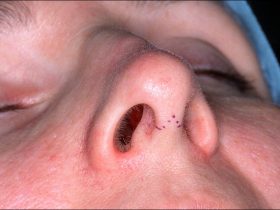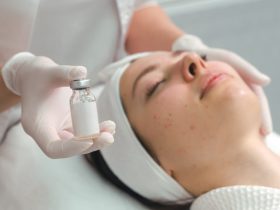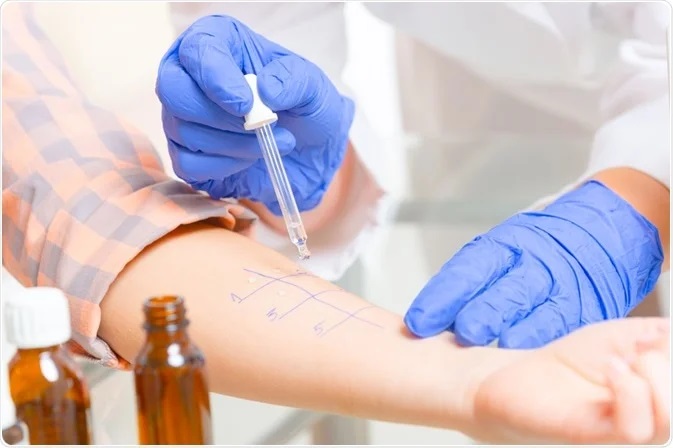Have you ever enjoyed a certain type of food for years only to wake up one day with allergic reactions after eating the same? Allergies can be tricky. Some have it early on as children, others develop it in their adulthood. If you would like to be one step ahead and minimise the chances of experiencing allergy symptoms, then taking an allergy test in Singapore, specifically a skin prick test, can help you.
What are allergies?
Allergies are results of the immune system’s reaction to foreign bodies that it deems harmful or toxic for the body. Our immune system protects us from developing diseases and illnesses by producing antibodies. Immunoglobulin E or IgE is one type of antibody that the immune system generates particularly to combat allergy symptoms.
A person can develop at any age. The risks are higher for those with family medical history of certain allergies. While most allergies appear in the initial stages of childhood, they can also develop later in adulthood and can stay for as long as you live.
What are the most common types of allergies?
There are two common types of allergies:
- Airborne
- Food
Airborne allergies are allergens that are carried by air. The immune system reacts to these aeroallergens once they are inhaled. There are a lot of airborne allergens present in the environment. Their presence is mostly harmless in nature, but may cause allergic reactions to some people. Here are some examples:
- Dust mites
- Fungal spores
- Pet danders
- Pollen
Food allergies happen when we ingest a certain type of food that contains proteins that our immune system considers harmful. Food allergy triggers may also be airborne. This can occur during food preparations, processing, or even when cooking. Any kind of food can trigger an allergic reaction, but the major food allergens are:
- Crustacean shellfish
- Eggs
- Fish
- Milk
- Peanuts
- Sesame
- Soybeans
- Tree Nuts
- Wheat
Other factors aside from airborne and food allergens exist, such as:
- Chemicals
- Insect sting
- Medicines
What are the symptoms of allergic reactions?
Allergic reactions can be mild or life-threatening. They can influence the way you breathe and digest food, as well as cause your skin to develop inflammations.
| Type of Allergen | Allergy symptoms |
| Airborne allergens | • Anaphylaxis
• Conjunctivitis • Clogged nose • Itching of eyes, nose, roof of the mouth • Sneezing • Stuffy nose |
| Food allergens | • Anaphylaxis
• Hives • Inflammation of the face, tongue, mouth, or lips • Itchy skin • Rash |
| Chemical allergens | • Flaky or peeling skin
• Itchy skin • Red patches on skin |
| Drug allergens | • Anaphylaxis
• Hives • Itchy skin • Inflammation of the face • Rash • Wheezing |
| Insect sting allergies | • Anaphylaxis
• Cough • Edema at the site of the sting • Hives • Itchy skin • Shortness of breath • Tightness in the chest • Wheezing |
Anaphylaxis is a life-threatening condition caused by a severe reaction to an allergen. Anyone experiencing the following symptoms should be given emergency medical attention:
- Blood pressure drop
- Lightheadedness
- Loss of consciousness
- Rash
- Nausea
- Pulse that is rapid and weak
- Severe shortness of breath
- Vomiting
Is there a way to prevent allergies?
The manifestation of allergies can happen anytime and anywhere. There is no concrete way of preventing them, but avoiding your allergen triggers is the wise way to go if you know what they are. Likewise, you can always have prescribed medications by your doctor on hand to better protect yourself in case symptoms show.
What is the best allergy test in Singapore to know about trigger allergens?
The best allergy test available in Singapore to know the factors that can trigger an allergic reaction in your body is a skin prick test. This is done by introducing a small amount of substance to your skin using a prick lancet and observing whether this will cause an allergic reaction. When it does, an itchy, reddish circular and elevated bump, called a wheal, emerges at the site where the substance was introduced within 15 to 20 minutes.
Parts of the body where the skin prick test can be performed are:
- Back
- Forearm
- Upper arm
What should you expect before undergoing a skin prick test?
A consultation with a doctor should be done prior to a skin prick test. Your doctor will ask you about the following during your talk:
- Your personal and family medical history
- Medications you are taking or have taken in the past, including those that control your allergy symptoms
- Symptoms you are experiencing or have experienced
- What triggers your allergic reactions
Based on the information that you have provided, your doctor will identify the allergens that will be used for your skin prick test. You can be tested anywhere from 4 to 40 allergens.
How should you prepare for a skin prick test?
Your doctor will give you specific instructions on how to prepare for your skin prick test. Generally, you should not take any form of antihistamine or medications with antihistamines (e.g. cold medicines) before the procedure. If you have been taking antihistamines regularly, inform your doctor as you may be asked to stop taking it days or weeks before your test. Any other medications that can influence the results of your skin prick test may need to be stopped.
On the day of the testing, be careful not to come in contact with chemicals that can set off possible allergic reactions. Do not use creams, oils, lotions, or perfume on the part of the skin where the skin prick test will be administered.
How is a skin prick test done?
A skin prick test is done by:
- Cleaning and disinfecting the skin where the allergens are to be introduced
- The target area is marked at least 2 centimetres apart, according to the number of allergens used for testing.
- A tiny drop of the substance is placed beside each mark and introduced into the skin using a skin prick lancet
- Any excess substance is removed from the skin
- Reactions on the skin are observed within
Serious allergic reactions to substances used for the test rarely happen. This type of test should be done inside the doctor’s clinic, so proper treatment can be given in the event a serious reaction to an allergen occurs.
Can anyone undergo a skin prick test?
A skin prick test is a safe procedure that can be done on anyone as young as infants that are over 6 months.
__
Artisan Health Clinic
Paragon
290 Orchard Road #07-01,
Paragon Medical Suites,
Singapore 238859
https://www.artisanhealthclinic.sg/
Phone / Whatsapp
(65) 8129 8877










